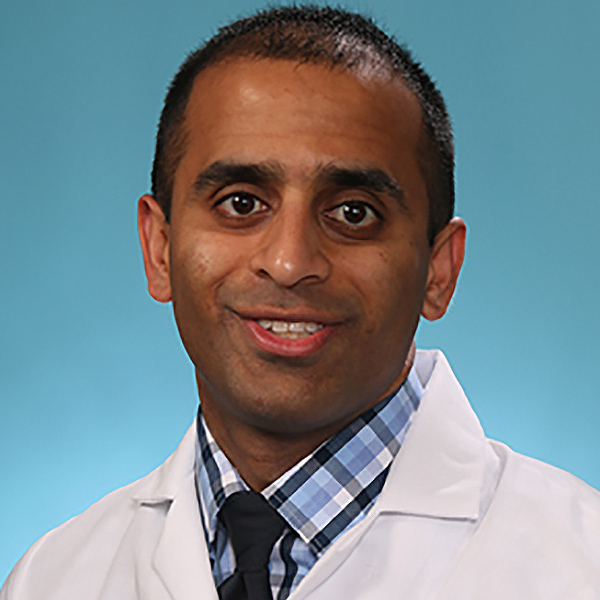FIT Spotlight: Ankit Bhatia, MD

Ankit Bhatia, MD, is a third-year cardiology Fellow in Training (FIT) at Washington University School of Medicine in St. Louis, MO, and will be staying on for an advanced heart failure and transplant fellowship during the upcoming academic year.
He is also an innovation FIT in the BJC HealthCare/Washington University School of Medicine Healthcare Innovation Lab. Bhatia serves as FIT representative on ACC's Coding Task Force and Heart Failure and Transplant Section Leadership Council. Follow Dr. Bhatia on Twitter: @AKBhatiaMD.
What are your plans after cardiology fellowship?
After completing training in 2021, I plan to continue practice as an advanced heart failure and transplant cardiologist.
An ideal role would allow me to split my time between inpatient heart failure, ventricular assist device and transplant care; outpatient efforts focused on virtual care and remote patient monitoring; and clinical research.
I would like to stay engaged in the many facets of heart failure care, including before, during and after advanced therapies.
Tell us more about the innovation fellowship?
BJC HealthCare to provide $20 million in Healthcare Innovation Lab partnership with @WUSTLmed. https://t.co/4Hprkg8RWI pic.twitter.com/hj5lOeCmIK
— BJC HealthCare (@BJC_HealthCare) June 3, 2017
The Healthcare Innovation Lab is a joint effort of Washington University School of Medicine and its partner health system, BJC HealthCare. The lab catalyzes research and development in care delivery innovation to improve the health of patients and their communities.
To date, the lab has developed innovations in predictive analytics in inpatient care, critical care and palliative care; remote patient monitoring in heart failure, post-operative and post-partum patients; and patient transportation for ambulatory patients.
My role as an innovation fellow is to provide clinical input and gain further exposure to projects related to my area of interest: heart failure virtual care. My main project is a prospective pilot in heart failure patients employing passive biosensors (including an under-bed sensor to measure nighttime vitals) for noninvasive remote patient monitoring (RPM).
To date, noninvasive approaches to RPM in heart failure have been relatively ineffective, which is in-part driven by poor patient adherence. By employing passive approaches to obtaining patient biometric data, we hope to enhance patient adherence and engagement with the RPM program.
Overall, the fellowship has been a great experience, getting exposed not only to new ideas and technologies, but also to the operational side of medicine.
How do you approach a work-life balance?

I am still trying to figure that one out, especially following the birth of my son this past October.
From what have I ascertained so far, work needs to stay at work and home needs to stay at home, as much as that is possible.
I will try to answer this question again once my son is sleeping through the night.
What are your hobbies outside of cardiology?
Food: Up until the birth of our son, this meant finding a cool new restaurant for my wife and I to go to as often as we could. Now it means finding a cool recipe and trying to make it whenever there is time.
Travel: So far, I have been to 20 countries and would like to continue to expand on that. Next up for us is to take my family back to Japan, where I lived for a year growing up.
Orange Theory Fitness: While it was intimidating at first being the only guy when my wife dragged me to class for the first time, it has been a great way to stay in shape and outlet for my competitive side.
Do you have any mentors that you would like to recognize?
Fantastic time celebrating Brian Pierce with our first annual Bruce Protocol Challenge! #WashUCards @akates1 @prathakker @KBerlacher @EmilyGuhl pic.twitter.com/bK5L8bJjEz
— Ankit Bhatia (@AKBhatiaMD) January 30, 2020
From a heart failure standpoint, our chief Gregory A. Ewald, MD, FACC, has been very helpful in my academic and clinical development. He got me involved early in clinical research, focused on cardiac donor management prior to transplantation and has been my clinic preceptor for the past two years.
There is an efficient approach to advanced options evaluations without missing details, which I am picking up from him over time. Justin Hartupee, MD, PhD, has also been a great research mentor.
Regarding my interest in heart failure virtual care and remote patient monitoring, Thomas M. Maddox, MD, MSc, FACC, has been an invaluable resource. He is a practicing cardiologist and serves as executive director of the Healthcare Innovation Lab.
Through my year as innovation fellow, he has proactively opened the door on a number of opportunities to gain further exposure in this space, from operational to research to clinical.
My program director, Andrew M. Kates, MD, FACC, is an endless of source of support whenever it is required. Not only does he manage every need of our large 27-person cardiology fellowship, he also is serving as chair for ACC.20 Together With World Congress of Cardiology.
His involvement in the ACC has sparked the interest of many of our fellows to get involved in various capacities. My assistant program director Philip M. Barger, MD, is also a beacon of wisdom.
How did you first become involved with the ACC?

At the encouragement of my program director, I applied to several ACC councils of interest as a first-year fellow. Unfortunately, I was not offered a spot on any of them. I reapplied as a second-year fellow and was offered positions on the ACC Coding Task Force and the ACC Heart Failure and Transplant Section Leadership Council.
While both councils have had a significant experiential learning curve, the experiences so far have been great.
On the ACC Coding Task Force, we are responsible for creating, revising or deleting CV Current Procedural Terminology (CPT) codes. Representatives from the Coding Task Force then attend American Medical Association CPT editorial panels – where the code change proposals are presented – and subsequently voted on and if approved, go to the Centers for Medicare and Medicaid Services Relative Value Update Committee for valuation.
Each month, we hear presentations regarding novel diagnostics and therapeutics in cardiology and then discuss associated CTP code recommendations.
On the ACC Heart Failure and Transplant Section Leadership Council, we represent the heart failure community by developing and implementing initiatives (including publications and educational curriculum) related to heart failure, and act as a liaison between heart failure specialists and ACC leadership.
What other ACC activities are you involved in?
Through my work in the Healthcare Innovation Lab, I have gotten involved in ACC's Innovation Section and am a member of the Member Engagement and Entrepreneurship and Communications, Publications and Advocacy working groups.
We are currently working on an "How to Build an Innovation Center" Toolkit for the Section website and follow-up webinar.
What advice do you have for other ACC FIT Section members looking to get more involved with the College?
If you want the ACC to be a part of your career long-term, aggressively look for opportunities to get involved from the get-go, whether it be at the local or national level.
Opportunities beget further opportunities, so start by getting a foot in the door.